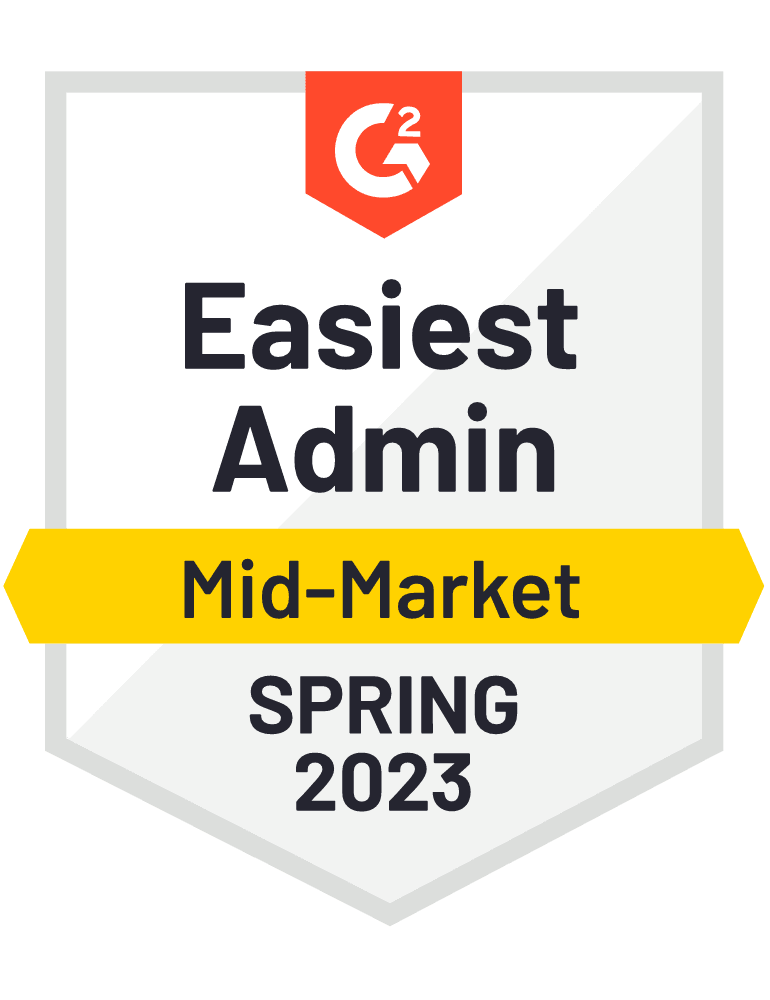I am so excited to go shopping for a new payroll company…said no one ever!
Whether you are a brand-new business, unhappy with your current provider, or just looking to see what new functionality is available in the world of payroll and human capital management (HCM), you know the song and dance you are about to, well, sing and dance.
First, it is all about the research. You may listen to recommendations, see what Google provides, go straight to the websites of household payroll brands, or check out review sites. The tricky part here is that much of what you consume is marketing. As a marketer, I am not saying there is anything wrong with marketing, of course! But how do you know that the message presented to you will translate into a solid choice of payroll provider for your company?
If this article was entitled, “The 5 Obvious Things to Consider when Choosing a Payroll Company,” it would include: breadth of product, feature functionality, scalability, positive ROI, and reputation. But instead of telling you all the things you definitely know already (hence the obvious), how about we focus on the five things you may not have considered?
1. Proprietary versus Licensed Software
You've probably never thought about this, but if a company’s core platform is payroll, does it matter if they own it or license it? Yes, you read that right – although you may not have even realized it, some payroll companies don’t actually own their own software, to begin with. Just ask Google about "white-label payroll solutions" and you'll see how many companies sell their software to payroll providers, who then put their own name on someone else's technology to sell to firms like yours.
When a company owns its own software, the company has much more control over deciding what functionality gets built as a result of client feedback. Think about it - if many providers use the same licensed software and they each have a few clients that need particular features, the feedback chain goes from each individual provider to the licensing provider.
The licensing provider must then decide if each request is something their other partners would need as well – and that request may or may not make its way onto the product roadmap for the licensors. Once the licensor agrees to make the changes, it gets put on their timeline, but of course, other proprieties may delay the work item.
On the flip side, when a company owns its own software, it retains the ultimate decision-making power. That doesn’t always mean that every client request will end up in development, but it means that if there is enough of a demand for something, it will get done.
If you have a rather simple payroll or a small company, this may not matter. But if you are looking for a true partner willing to consider your industry or nuances in your payroll, you should consider asking!
2. Fiduciary Responsibility and Audited Controls
We all know the obvious questions to ask: do you have direct deposit? Do you have direct debit? But if you are going with a local or mid-sized provider, have you ever asked, how much total tax money do you move in a year? Hint: you should! Now, you are probably wondering why this question is important. Here is why:
When you are asking a payroll provider to calculate, deposit, file, and reconcile your taxes (which you do, by the way, by signing a power of attorney), you are expecting that these funds will be both deposited and filed on-time and accurately. Late or inaccurate deposited or filed taxes will incur penalties and interest. While you are counting on your service provider to do these things, if they don’t have the right automation and the right internal controls – well, your taxes may just sit in an account waiting for a penalty (or, even worse, get used for other purchases or luxuries).
You've read the newspaper, but you may have forgotten the stories about all the small payroll providers who didn’t properly deposit tax funds. Who was left holding the bag? You guessed right – the client! If you don't want to get caught in that kind of a mess, you should ask a potential provider: Has your firm or its clients incurred penalties and interest in the last 12 months? If I request proof of deposit, will you provide it?
Then there is the question of how the money is moved, and where it's moved to. A reputable company will have a fiduciary account that only holds client funds. That account will be reconciled to the penny daily and independently audited quarterly. Additionally, this fiduciary account will have a very limited list of authorized users. What you don’t want is a company that commingles your funds with its own funds, as that exposes you to the multiple people who have the authority to debit that account – including former employees who may still have access.
Another important question to ask: Has your firm been certified annually as SSAE16 level 2? The answer “yes” in this case means that this provider has documented their processes, been verified, and been validated by an independent auditing firm. This is important because any provider can claim to have reliable procedures when it comes to best practices, but the certification puts the proof in the pudding.
By all means, there are very reputable small local companies! But our purpose here is to educate you on the right questions to ask so there are no surprises later.
3. It’s all about the APIs
Maybe the last time you evaluated a new provider it was ten years ago, or even five years ago, and APIs were not part of the discussion, but today it is one of the more common three-letter acronyms.
Put simply, an API – otherwise known as an Application Programming Interface – is basically code that allows two software programs to communicate with each other. More importantly, it's also the "set of routines, protocols, and tools for building software applications which specify how the software should interact," according to #HRWINS.
Why should you care about APIs? Well, besides the fact that you use them in some capacity every day for things like the Internet and social media, APIs play a crucial part in today's HCM technology. As FinancesOnline CEO Sebastian Lambert pointed out in his 2018 SaaS Industry Market Report, open API access is no longer a luxury, but a critically necessary feature of any new SaaS (Software as a Service) solution.
A recent #HRWINS report agrees that "modern HR technology applications are now expected to come with a complete and transparent API" – and that means payroll, too. Open APIs are becoming the norm, which means an improved user experience for you. Your data should be able to flow easily (and without error) between the different platforms you use, and your solutions should be talking to each other. Without this capability, you can expect longer implementation periods, more expensive integration, and ultimately, a conglomeration of products that don't work well together.
4. Service Matters
Onshore, offshore, which shore are we talking about? Today, many companies are expected to have it all when it comes to service – flexible hours and live people. That often results in having offshored employees servicing clients. While the overall trend is moving away from international outsourcing, the offshore services industry is here to stay, as research firm IDC estimates it will have an average yearly growth of 8 percent from 2016 to 2021. And although the Philippines continues to dominate offshoring as a region, Latin America is continuing to grow as a popular region for offshoring call centers, according to the Site Selection Group's 2017 Call Center Location Trend Report.
So, here's the thing – it is not necessarily a problem that you're speaking with someone who is not sitting here in the U.S. The key thing you need to know is whether the person you speak to on a Monday will actually communicate what you need to a person who may be helping you on a Wednesday. In other words, if you value good service, there is something to be said for a model where only a select few people service your account. We all know what it is like when there are too many cooks in the kitchen.
If it is a simple how-to question, then it may not matter who you get or where they sit. But if you think it is important for you to have a single point of contact or a small team, then make sure you ask which service model each company provides.
5. What am I signing?
You’ve made it to the finish line and your sales associate comes in with a ton of papers and says, “don’t worry about this!” as you sign each one. Let’s go through the most common three:
Sales Agreement or Contract
Where there is the fine print, there are lawyers – and where there are lawyers, there are clauses. In the industry, most people will be granted a certain number of days out (30, 60, 90) when canceling an HCM service. That means that your payroll company expects you to give them notice and continue processing with them until that time frame has been met. There may also be other fees associated with terminating.
When signing with a new HCM partner, understand that many companies are looking for contracts these days. It is often couched as a benefit to you: “if you sign this agreement for two years, you are guaranteed a price lock and no increase…” Remember, this is not necessarily a bad thing. If you are completely satisfied with a partner, it actually works to your benefit to have a locked-in contract. The issue only arises when things aren’t going so well. It’s a bit of a chicken/egg problem: if you know the company is good, there's no issue, but if you don’t know that for sure, then there may be an issue.
Power of Attorney
If your new provider is going to handle your taxes, then signed Powers of Attorney are essential. These forms grant your provider authority to deposit and file on your behalf on both the federal and state level. An increasing number of states won’t allow your third-party payroll service to handle payroll tax filing on your behalf without a valid Power of Attorney on file. No one wants to deal with rejected filings, so the sooner you get these forms completed the better!
Just as important is effectively canceling your prior Power of Attorney. If you're switching payroll companies, chances are your old provider had you sign a Power of Attorney when you first started. Before you can grant that power to your new provider, you need to make sure to remove it from your old provider.
Banking Authorization
This document gives your new provider permission to debit your bank account for taxes and fees for their service. The authorization itself is very simple. Where most people have questions is in the details (and those vary by provider). Ask your new provider questions like: What day should I expect my account to be debited? How long will it take to refund my account money should there be an error? What happens if I accidentally have nonsufficient funds – what is your company policy?
Most often, banking only becomes an issue when people aren’t prepared or fail to understand the banking policies of both the provider and their own bank.
So, before you dive into the research for your next payroll solution, keep all of these points in mind. As you evaluate your options, you'll be able to pick the solution that's best for your business!
This information is for educational purposes only, and not to provide specific legal advice. This may not reflect the most recent developments in the law and may not be applicable to a particular situation or jurisdiction.










